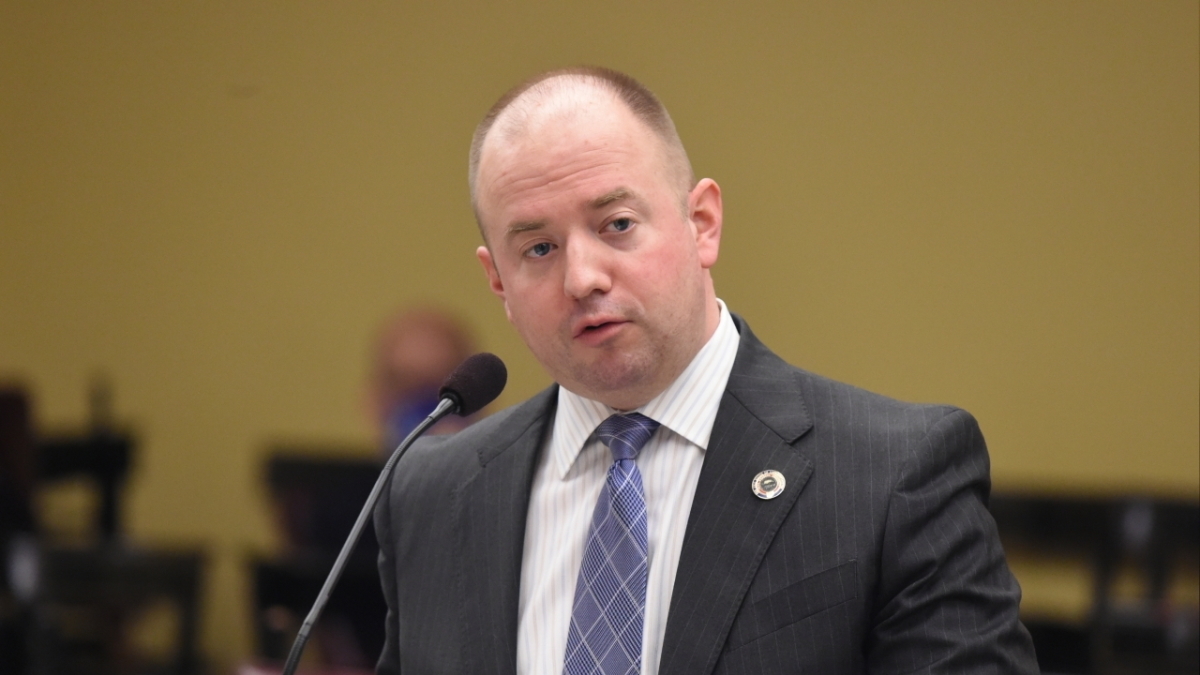Ohio State Rep. Brian Stewart | ohiohouse.gov
Ohio State Rep. Brian Stewart | ohiohouse.gov
On Aug. 16, Ohio State Rep. Brian Stewart argued that the new redistricting amendment seemingly advocates bipartisanship, but actually enables one party to pass a decade-long map with just three out of five "independent" members' support, ultimately eroding the prior mandate for genuine bipartisan agreement. This statement was made within the context of Ohio's legislative proceedings.
"A dirty little secret of the new redistricting amendment is that it’s actually a step *backwards* in terms of requiring bipartisan approval of a map," Rep. Stewart wrote in an Aug. 16 social media post on X, formerly Twitter. "Current law says you only get a 10 year map if 2 minority party members vote yes. Under this proposal, if one party gets 3 of the 5 “(faux) independent” members to vote with them, they can pass a 10 year map with zero support from the other party."
According to the Ohio Redistricting Commission, following the U.S. Census every 10 years, Ohio's 99 House districts and 33 Senate districts must be redrawn to align with Census results. The Ohio Redistricting Commission is responsible for redrawing these legislative districts. For the first time, this decade sees the newly configured Ohio Redistricting Commission working under updated criteria established by Ohioans in 2015.
Ohio's congressional district lines are initially drawn by the legislature through a supermajority vote, according to All About Redistricting. If this fails, a seven-member backup commission takes over. In the case of failure by both the legislature and the backup commission, the state legislature draws the lines as regular legislation, subject to gubernatorial veto. Maps passed by supermajority or the backup commission are valid for 10 years, while those passed through regular legislation are valid for only two general elections. Ohio's state legislative lines are determined by a 7-member politician commission, with bipartisan maps lasting a decade and maps passed by a simple partisan majority lasting for two general elections.
According to the Ohio Capital Journal, Ohio's U.S. Congressional and Statehouse district maps were declared unconstitutional gerrymanders multiple times by a bipartisan majority of the former Ohio Supreme Court. Despite this, voters were compelled to vote under these maps in 2022 due to an appeal to a federal court by Republicans on the Ohio Redistricting Commission. The recent shift in the Ohio Supreme Court majority and key retirements have implications for future redistricting decisions. Calls for anti-gerrymandering reform by an independent commission have since grown stronger.
Former Ohio Supreme Court Chief Justice Maureen O’Connor, who has been involved in cases involving district maps, is now working with a group aiming to change Ohio's redistricting process, according to Statehouse News Bureau. While Ohio has attempted to ban gerrymandering through constitutional amendments, O’Connor suggests these efforts fell short due to the composition of the commission responsible for redrawing the districts. She proposes the creation of an independent 15-member commission to improve the process.
“In retrospect, looking at those constitutional amendments, realizing who populated the commission, it was doomed to fail," said O’Connor, according to Statehouse News Bureau.
ABC 13 News reports that a new proposal seeks to establish an independent 15-member commission for redistricting in Ohio, inspired by Michigan's system. Advocates claim that the current system grants too much power to politicians and propose removing them from the map-making process. “These folks are drunk on power. Well, what do you do with drunks? You take away their keys, and so that means we need to take the map-making away from them and follow what other states have done,” Catherine Tucker, the executive director of Common Cause Ohio, said.
According to his bio page, Rep. Stewart serves his second term as State Representative for Ohio's 12th House District, covering Madison and Pickaway Counties as well as a part of Franklin County. In addition to his public service, Stewart operates a successful law practice, The Law Office of Brian Stewart, LLC in Circleville. He is licensed to practice before federal courts, including U.S. District Courts in Ohio and the Sixth Circuit U.S. Court of Appeals. He has represented clients in various counties and appellate districts throughout Ohio.






 Alerts Sign-up
Alerts Sign-up